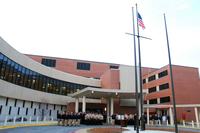An Army Special Forces A-Team may have been responsible, or at least complicit, in the torture, deaths and disappearances of 18 Afghan civilians in volatile Wardak province in late 2012 and early 2013, according to a report by Rolling Stone magazine.
Under the headline "The A-Team Killings," the article included interviews with witnesses, families of the victims and an Afghan interpreter for the Americans that added detail to the long-standing allegations threatening the continued U.S. presence in Afghanistan.
As part of a five-month investigation of the Wardak incidents, Rolling Stone reporter Matthieu Aikins interviewed Zikria Kandahari, the interpreter, who has been jailed by the Afghans for his alleged involvement.
Kandahari claimed that he was being framed by the Americans from Operational Detachment Alpha 3124, based in Fort Bragg, N.C., which operated in the Nerkh district of Wardak province.
"They knew what was happening," Kandahari told Aikins. "Of course they knew. If someone does something on the base, everyone sees it. Everyone knows everything that’s going on inside the team."
In February, the initial allegations about abuses by the Americans escalated when villagers began unearthing the bodies of 10 Afghans who had been buried near Combat Outpost Nerkh that was used by ODA 3124. Eight other Afghan civilians were said to be missing.
At a Feb. 24 news conference in Kabul, Aimal Faizi, a spokesman for Afghan President Hamid Karzai, said that it had "become clear that armed individuals named as U.S. special forces stationed in Wardak province were engaging in harassing, annoying, torturing and even murdering innocent people."
Three days later, German Gen. Gunter Katz, a spokesman for the International Security Assistance Force, said: "Over the past few weeks, there have been various allegations of special forces conducting themselves in an unprofessional manner" in Wardak, but "so far, we could not find evidence that would support these allegations."
The Defense Department referred questions on the new allegations in the Rolling Stone article to ISAF whose commander, Marine Gen. Joseph Dunford, ordered an investigation in July to be conducted by the Army's Criminal Investigation Division.
In a statement, Army Col. Jane Crichton, an ISAF spokeswoman, said: "We are aware of the recently published Rolling Stone article which repeats prior allegations concerning ISAF personnel."
The statement said that ISAF takes the allegations seriously and noted that Army CID "will not release information on this matter at the present time to protect the integrity of this ongoing investigation."
The Human Rights Watch advocacy group called on ISAF to expand the investigation beyond the scope of the CID.
"The Nerkh incidents should be investigated rigorously, impartially and transparently," said Andrea Prasow, senior counter-terrorism counsel and advocate at Human Rights Watch.
"The U.S. will need to do more than open an investigation," Prasow said. "The U.S. government needs to follow through with real evidence-gathering to uncover the truth, and bring to justice all those who are responsible for crimes."
Earlier this year, Karzai demanded the withdrawal of U.S. Special Forces from Wardak and he has cited the Wardak incidents in delaying approval on a Bilateral Security Agreement with the U.S. for the continued presence of U.S. troops in Afghanistan following the withdrawal of combat forces by the end of 2014.
The U.S. has demanded that remaining U.S. troops be subject to U.S. and not Afghan law for any alleged offenses as part of the BSA. Karzai has pledged to submit the proposed BSA to a "loya jirga," or convention, of tribal leaders expected to convene next week.

























